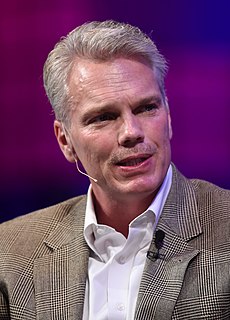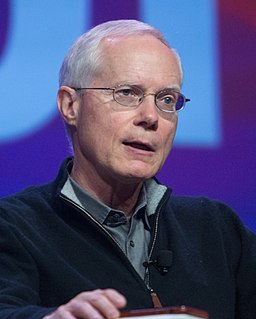A Quote by Brad D. Smith
At Intuit, we've introduced concepts like unstructured time to enable individuals and small teams to be entrepreneurial and identify new processes or product ideas.
Related Quotes
Customer-driven innovation was at the core of Intuit's first product, 'Quicken,' and it continues to guide us as we look to solve new problems in areas like mobile payments. Products like Intuit 'GoPayment' and the IntuitPayment Network are helping small businesses get paid faster, keeping cash flow strong and their business healthy.
Creativity is the generation and initial development of new, useful ideas. Innovation is the successful implementation of those ideas in an organization. Thus, no innovation is possible without the creative processes that mark the front end of the process: identifying important problems and opportunities, gathering relevant information, generating new ideas, and exploring the validity of those ideas.
It looks like the age of the mass is behind us and the age of the individual is upon us. The chasm that now exists between new people and old organizations is destroying economic value and inhibiting the emergence of a new chapter of capitalism aligned with the needs of this new society. The new purpose of commerce is to provide the tools, platforms, and relationships, digital or human, that enable individuals to live the lives they choose.
I call crony capitalism, where you take money from successful small businesses, spend it in Washington on favored industries, on favored individuals, picking winners and losers in the economy, that's not pro-growth economics. That's not entrepreneurial economics. That's not helping small businesses. That's cronyism, that's corporate welfare.
We make it easy for anyone to get free resources. Anyone can launch an idea for five minutes. Anyone can comment on, add, and enhance the idea. Need a designer? We provide an entrepreneurial matching system without the bosses getting involved. And in terms of unstructured time, we have a permission for that.
One of the factors that make great companies so great is that they have processes that allow them to solve difficult problems again and again. These processes have developed over time as teams have successfully wrestled with a certain type of challenge. Eventually, people begin to say, "This is just how we do something around here." The problem develops when that team then has to solve a very different set of challenges. The processes that are such strengths can be crushing liabilities.
Having what I call crony capitalism, where you take money from successful small businesses, spend it in Washington on favored industries, on favored individuals, picking winners and losers in the economy, that's not pro-growth economics. That's not entrepreneurial economics. That's not helping small businesses. That's cronyism, that's corporate welfare.

































